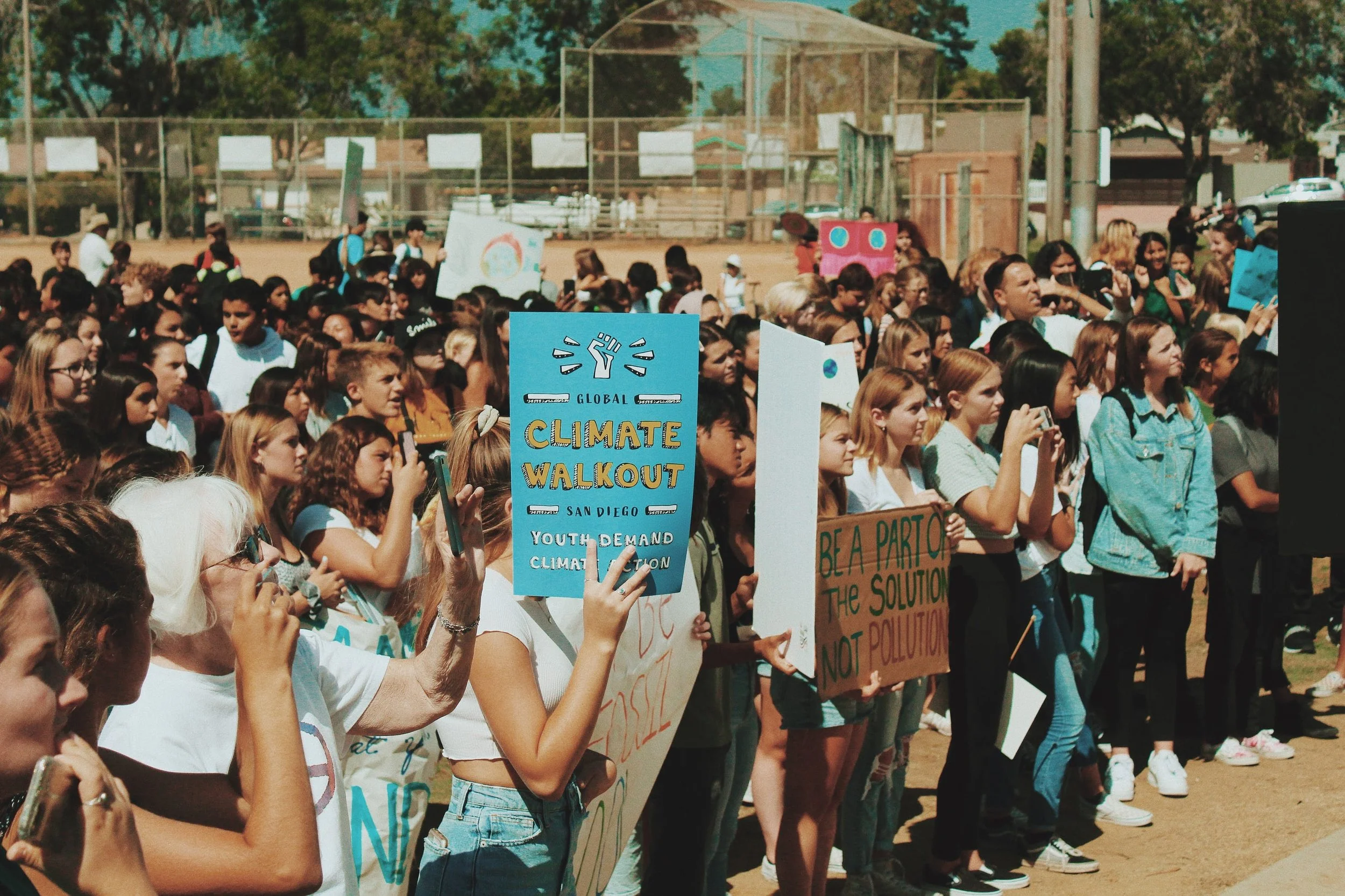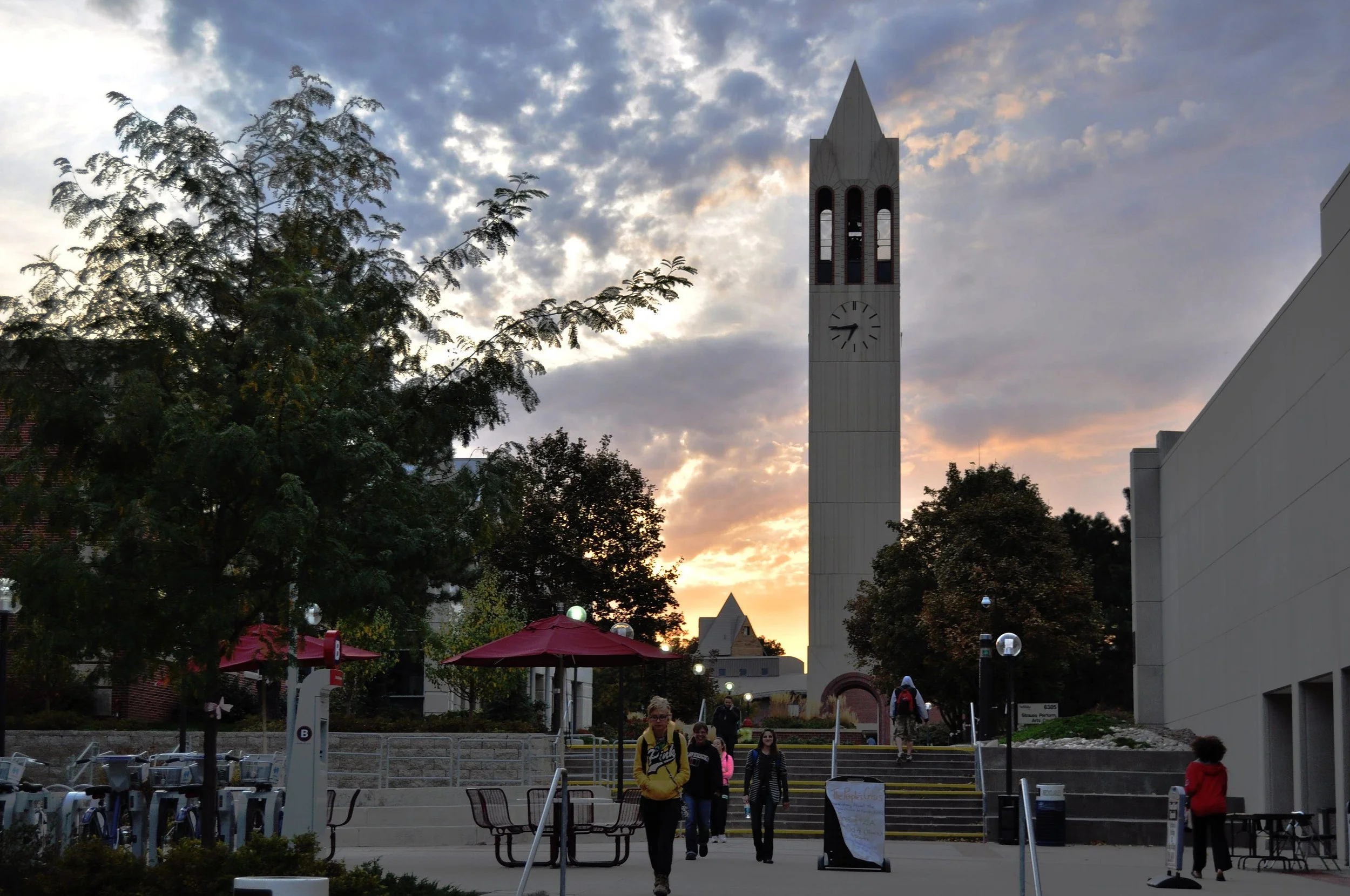The art of showing up anyways
“I believe that we will win.”
I’m a big fan of the US Women’s National Team’s rallying cry. As much as it gives off the Ted Lasso feel-good-feels, there really is something to seeing victory as something that’s in progress. And I think that’s not just true of sports, but other things we’re fighting for with more significant social impact.
But what do you do when it doesn’t actually look like a win is in the cards?
This is the exact question we ponder on the newest Creative Changemaker!
A month or two ago, I came across an editorial asking why all the major social movements and uprisings of the past few years don’t seem to have gone anywhere… from the Black Lives Matter protests in 2020 as far back as Occupy Wall Street in 2010. We’ve seen Arab Springs and Fees Must Falls, and while MeToo might have ended, or at least derailed some careers, what’s missing is a lasting action that prevents the injustices being protested from repeating themselves.
I think it’s easy for many people who had a lot of hope in these moments, who invested a lot of energy in giving them life, to feel a bit disillusioned. And that’s totally air. I find that our world is very stubborn when it comes to changing the status quo, and even when big things, like world-halting pandemics seem to change all order, we also cling pretty tightly to our what we’ve come to recognize as normal.
Sometimes that’s a good thing, but often it’s not. Especially when it leaves unjust systems in tact.
When you push for revolution so intensely but only get symbolic or incremental change, it's easy to wind up frustrated and demoralized. It makes a lot of sense to feel like all of your efforts were for nothing and that if change didn’t come after all that, it probably won’t ever come.
As much as I can empathize with those feelings, having a defeatist attitude can be pretty harmful. If I knew I was playing on a football or baseball team with players who had internalized a sense of defeat like that, I wouldn’t want them on the team. Nothing personal, but there’s not hing you can do with defeatism. But what do you do when progress comes in the form of cookie crumbs?
I think Nelson Mandela would know a few things about that. His push for ending apartheid was initially labeled as terrorism. In fact, he’d be on U.S. terrorism lists all the way until 2008. He had to speak knowing he would be deliberately misinterpreted and misunderstood. And when he got some momentum to his movement, well, he also got a 27 year prison sentence.
Seems like he’d know how to take an L, but the way he put it, he never took one. “I either win or I learn,” he said.
The lessons you earn from incomplete pushes for justice are valuable indeed. And I think a reframe like that can be extremely helpful.
Of course, go into a movement with a clear goal. A change in mind. Be clear about it, and push for that change.
But also realize that progress and wins can take a variety of forms and know how to not miss those along the way.
I recently heard an interview with some of the leaders of Hong Kong’s protests in 2014. In many ways it’s easy to see their uprising as a failure. They were up against some unlikely odds anyways. Trying to push for something against the Chinese government from an ambiguous state of nationhood already puts you behind the 8-ball.
The proposed reforms lost in legislation 28-8. Many student leaders were imprisoned.
But the leaders who shared their reflection said that they didn’t see it as a full loss. Because of their actions, they changed the course of conversation around their issues of concern for years to come. And they gained the sympathy and interest of an international audience
I find Erica Chernoweth’s 3% rule convincing. It states that all it takes is 3% of a population to be wholly committed to a cause for it to be a success. But if the threshold were that low, you’d think we’d see more movements come to fruition, huh?
Sometimes it is a matter of the stars lining up.
You often get to a point where the clear majority of a population wants a certain change to happen, but what’s missing is the political willpower to see it through. Gun legislation in the U.S. is a pretty good example of this. However, moving public pressure forward ultimately has an impact on legislation. We’ve seen that happen in climate advocacy a good deal. And when a law does change, general attitudes around a topic typically move in the direction of the law. This happened over time following the Civil Rights Act.
It’s an interesting dynamic where political will and cultural attitudes are both causes and effects of each other. It’s unfortunate that they don’t always do so in lockstep.
But that’s why I think it’s valuable to keep moving both forward as you are able to. Pushes for a Green New Deal and student climate walkouts happened in the middle of an administrative majority strongly opposed to these things. But the public support grew so that when political tides shifted, enacting much stronger climate laws was a windfall.
It’s also helpful to remember that sometimes backlash is a sign that change is happening after all.
Backlash is real. A lot of the nostalgia for the confederacy in the South only surfaced after the Civil Rights Movement abolished Jim Crow laws. Mass incarceration also scaled up in the years that followed. The Jim Crow laws themselves were a backlash against abolition.
Furthermore, I think a lot of stunts like book banning and anti-immigration rhetoric have emerged as backlash to these social movements as of late.
I think we have yet to really see just how many people have become activated by the social tensions of the past five or six years. It may have been different things to different people. Race, climate, corruption. Whatever it is, a very large portion of the population has recently found a cause they care about passionately. Many have experienced perhaps only one cycle of an uprising and a roadblock.
Still, all those shifts will have an impact as we get further down the road. When you’re focused only on the time horizon of a year or two, it’s easy to mistake backlash as a stalemate. Sometimes it’s an unpleasant sign of progress.
Showing up isn’t about us.
Ultimately, however, I think we all need to recognize that the call to show up and play our part in moving things forward doesn’t have a whole lot to do with us. When we’re part of a cause that’s bigger than ourselves, we can understand that a win for the cause might look a lot different from a personal win.
This is where showing up for a movement is quite different than the athletic examples I referenced earlier. Because sometimes you aren’t showing up just in search of a win.
Oftentimes, showing up is something you do to let the people who are most impacted by an injustice know they aren’t alone. To know that somebody else sees what they’re going through and stands with them.
In a micro-setting, this might look like confronting someone when they express a harmful belief. Not because you think you’ll convince them, but because you want to set a norm in that space of what’s tolerable and what isn’t. That has an impact on other people in that space who may be harmed by the belief.
In a more macro-setting, it looks like comments I’ve gotten from people in Haiti and other place expressing appreciation for hearing and sharing their stories. That knowledge that you aren’t invisible or alone is extremely valuable.
The reality is, we won’t see everything into completion in our lifetime, it’s about showing up anyways.
When I was a little younger, I would frame every cause I was working towards as a change I hope to see in my lifetime.
I want to see a free _____, in my lifetime. Within my lifetime, ______ will no longer have to ______.
Maybe enough time has gone by where “in my lifetime” isn’t the horizon it used to be. But I always realize, I need to be ready to show up for things where this vision isn’t possible.
If I get the privilege to live into my senior years, I hope to still be finding my way to work towards causes, many of which I wouldn’t get to see in the time I have left. It would be more about the generations following me.
I also know that the work is never totally done. You keep moving the needle forward. My children will have their own struggles for justice. There are many ways in which the struggle continues after someone’s life.
As someone who frames a lot of things through the lens of sports, I do think it’s important and valuable to envision a win and to play to win, but you also have find the other things that keep you in the fight.
I show up because it’s what I do. Because people matter. Because I care about the people who are oppressed and I want to stand with them. All of these are things we can do even when we don’t believe that we will win.








